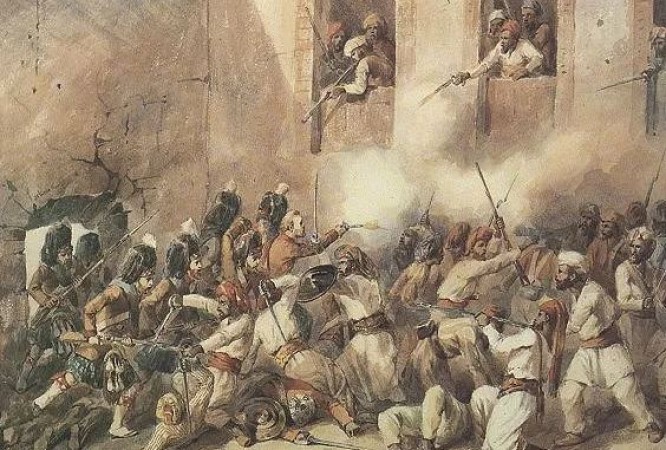
The Indian Rebellion of 1857, also known as the Sepoy Mutiny or the First War of Independence, was a significant turning point in India's history. This armed uprising against British rule had far-reaching consequences for both India and the British Empire. In this article, we will delve into the causes that led to this revolt, explore its outcomes, and analyze its impact on British rule in India.
Background: The Context of British Rule in India
Before delving into the rebellion, it is crucial to understand the historical context of British rule in India. The East India Company had established its presence and dominance in various parts of the Indian subcontinent. India's socio-economic landscape was diverse, with a complex tapestry of cultures and religions.
The Spark: The Immediate Triggers of the Rebellion
The rebellion was triggered by several factors, with one of the main issues being the introduction of the new Enfield rifle cartridges greased with animal fat. This deeply offended both Hindu and Muslim soldiers, as it required biting off the cartridge, which was against their religious beliefs.
Widespread Uprising: Spread and Impact
What started as a mutiny among the Sepoys quickly spread to civilians, and even some princely states rallied behind the rebels. The British faced immense challenges in quelling the uprising, and the repercussions were felt throughout the Indian subcontinent.
Leadership and Key Figures
Throughout the rebellion, several leaders emerged, displaying immense courage and determination. Rani Lakshmibai of Jhansi, Mangal Pandey, and Bahadur Shah II are among the notable figures who played pivotal roles during the rebellion.
Suppression and Aftermath
The British response to the rebellion was brutal, and they employed ruthless measures to suppress it. After quelling the revolt, the British Crown assumed direct control of India, leading to significant policy and administrative changes.
Long-Term Impact on Indian Society
The rebellion left a profound impact on Indian society. It fueled the growth of Indian nationalism and the political awakening of its people. Moreover, it reinforced cultural and religious identities, leading to long-term societal changes.
Impact on the British Empire
The Indian Rebellion of 1857 had a transformative effect on the British Empire. It marked the end of the East India Company's rule and increased the direct involvement of the British Crown in governing India. This event also prompted shifts in colonial policies.
Legacy and Commemoration
The rebellion's legacy continues to be remembered through commemorations of the brave martyrs. Its influence on subsequent independence movements and its interpretations by historians have sparked various debates and controversies.
The Indian Rebellion of 1857 stands as a pivotal moment in Indian history, reshaping the dynamics between India and the British Empire. The uprising's causes, outcomes, and impact on British rule have left a lasting impression on the collective memory of both nations.
Subway India outlets drop tomatoes from menu citing THESE reasons